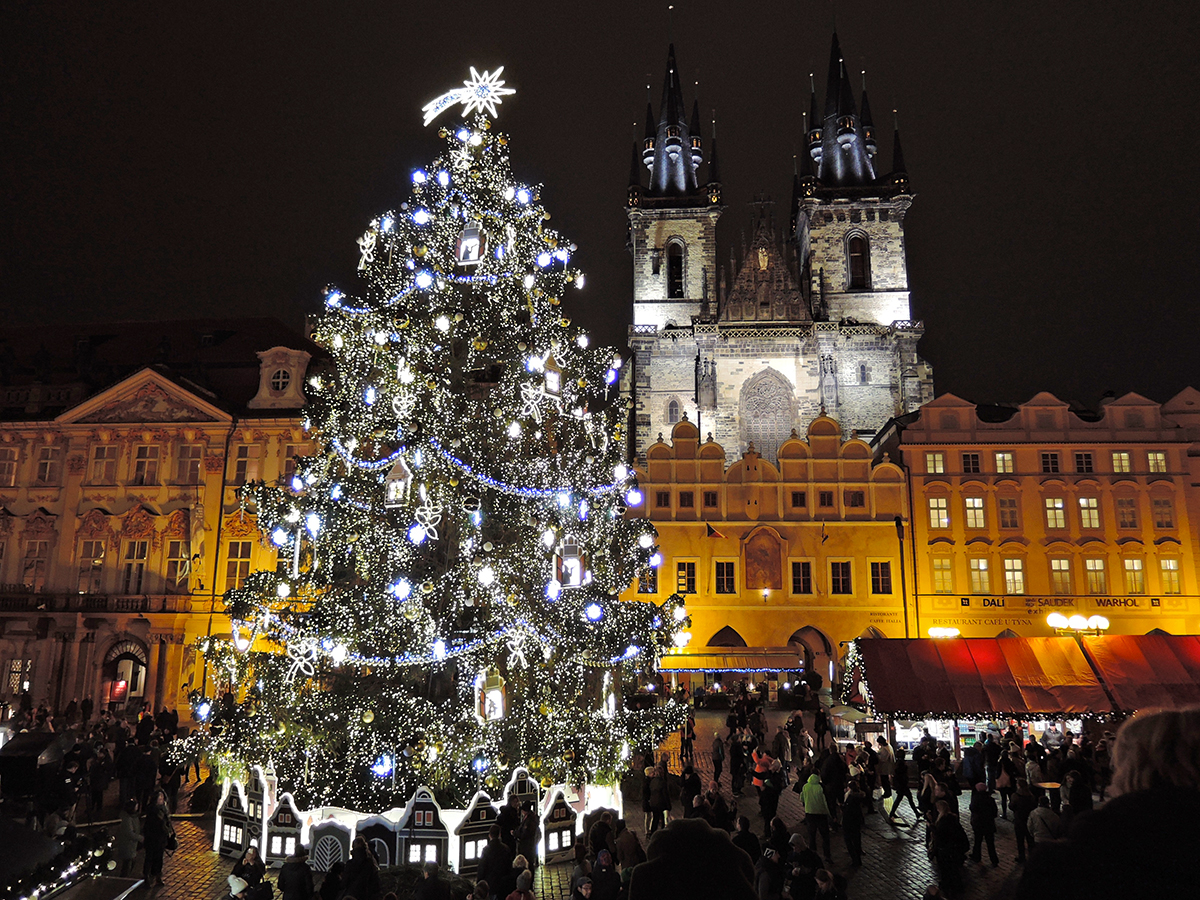One of the items on my bucket list is to visit a Christmas market in Europe. I don’t care which one or which country, I just think it sounds fun and that it would be a wonderful way to get into the Christmas spirit — which for me has been difficult since my mom passed way a year and a half ago (she loved Christmas).
So while I know it’s not happening this year, I am hoping to visit one in the near future. I know some folks who have been to these markets and they say it’s a fabulous experience and quite magical.
But I hear you asking me —
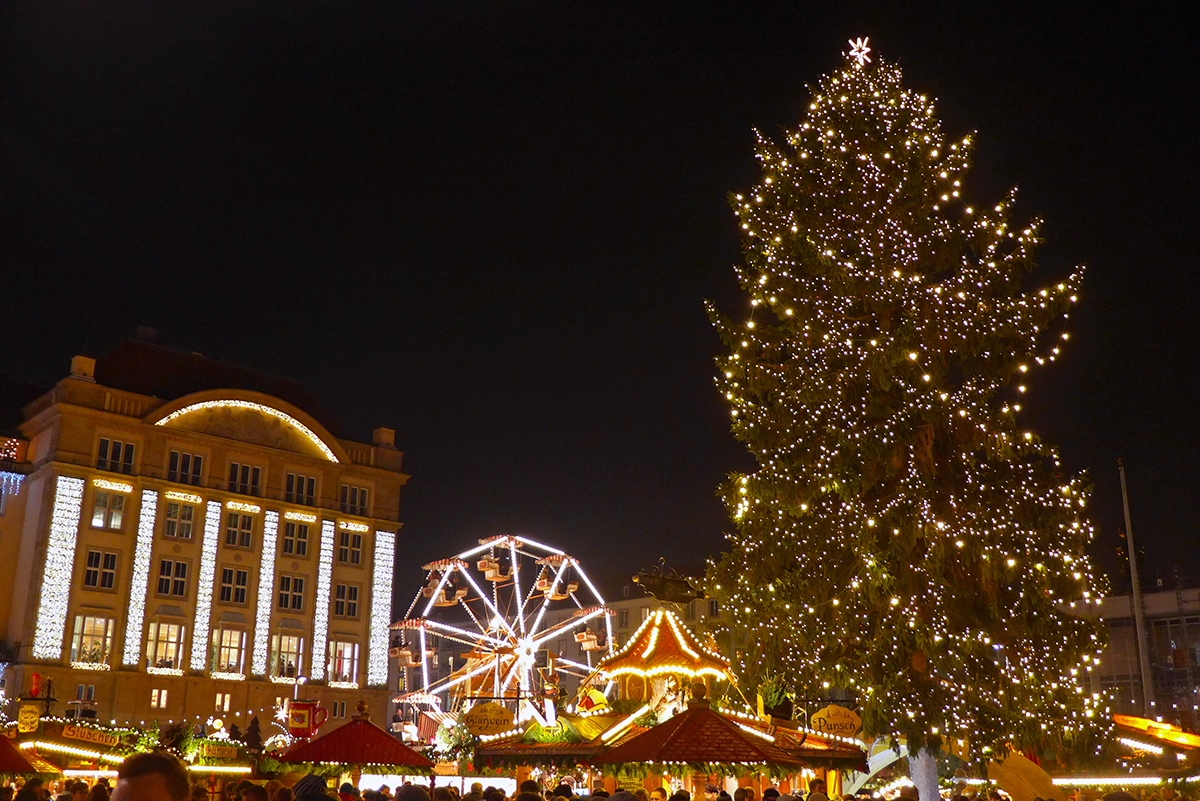
Christmas market, Dresden, Germany
What exactly is a Christmas market?
The best way to describe a Christmas market is to say they’re kind of like a farmer’s market or a street market but it’s all about Christmas and not food. Not that there isn’t food at these markets because there is.
Most of the markets are open the 4 weeks of Advent, so they begin around 4 weeks before Christmas. Some will go into the new year or up to New Year’s Eve. Others will end around Christmas Eve.
Most of these Christmas markets emphasize traditions and customs of the area. There will be stalls filled with local products and local artisans selling their wares. You’ll find traditional food to nibble on as you wander through the market and traditional drinks such as spiced cider or mulled wine to keep you warm.
Traditional music and dance is also often featured. And you’ll learn about some of the traditional Christmas customs and stories of the area. There will almost always be a Nativity scene.
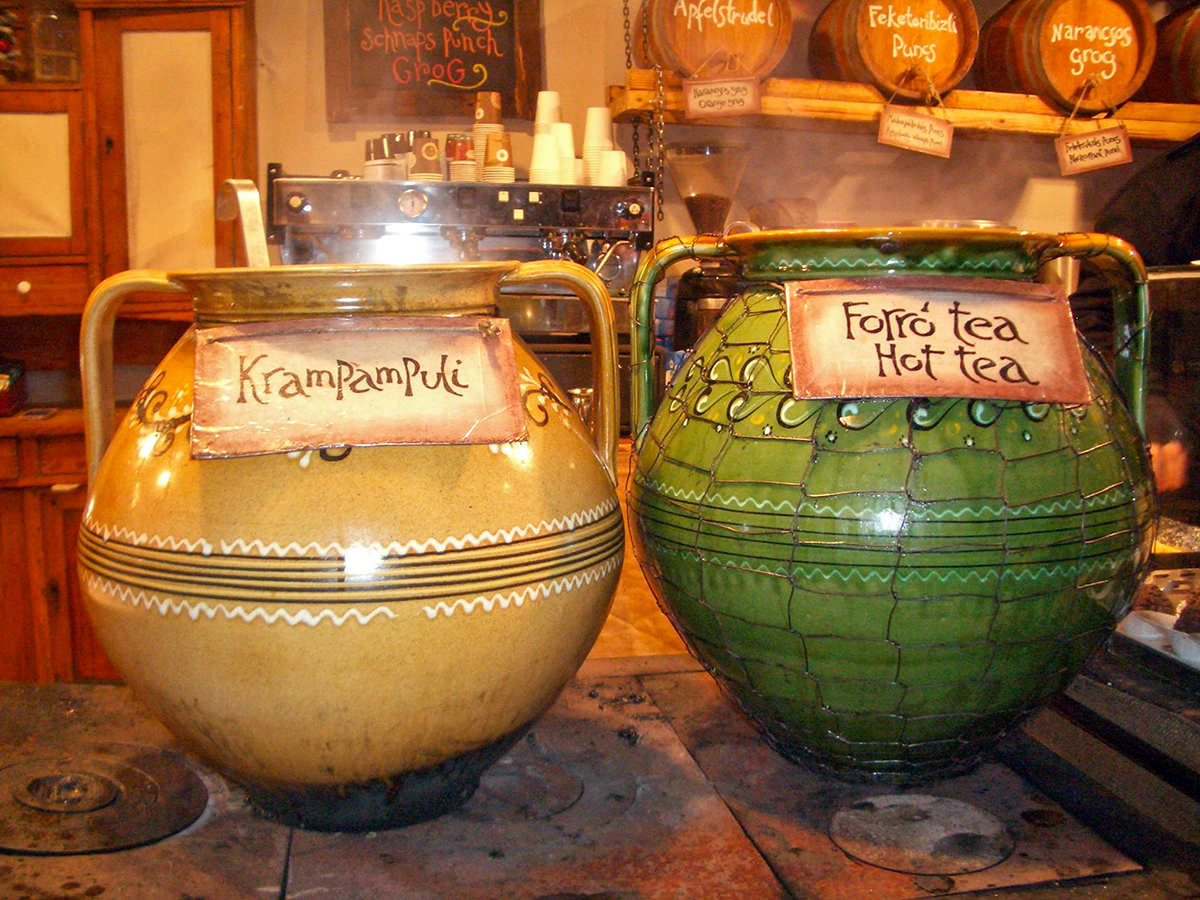
Hot drinks in Prague, Czech Republic
The origin of the Christmas market
It’s thought that Christmas markets began in Germany, Austria and possibly the eastern regions of France (Alsace and Lorraine). They most likely started popping up in the late 1300’s to the early 1400’s. Often there was a sort of parade or procession on opening night. This tradition continues in some towns.
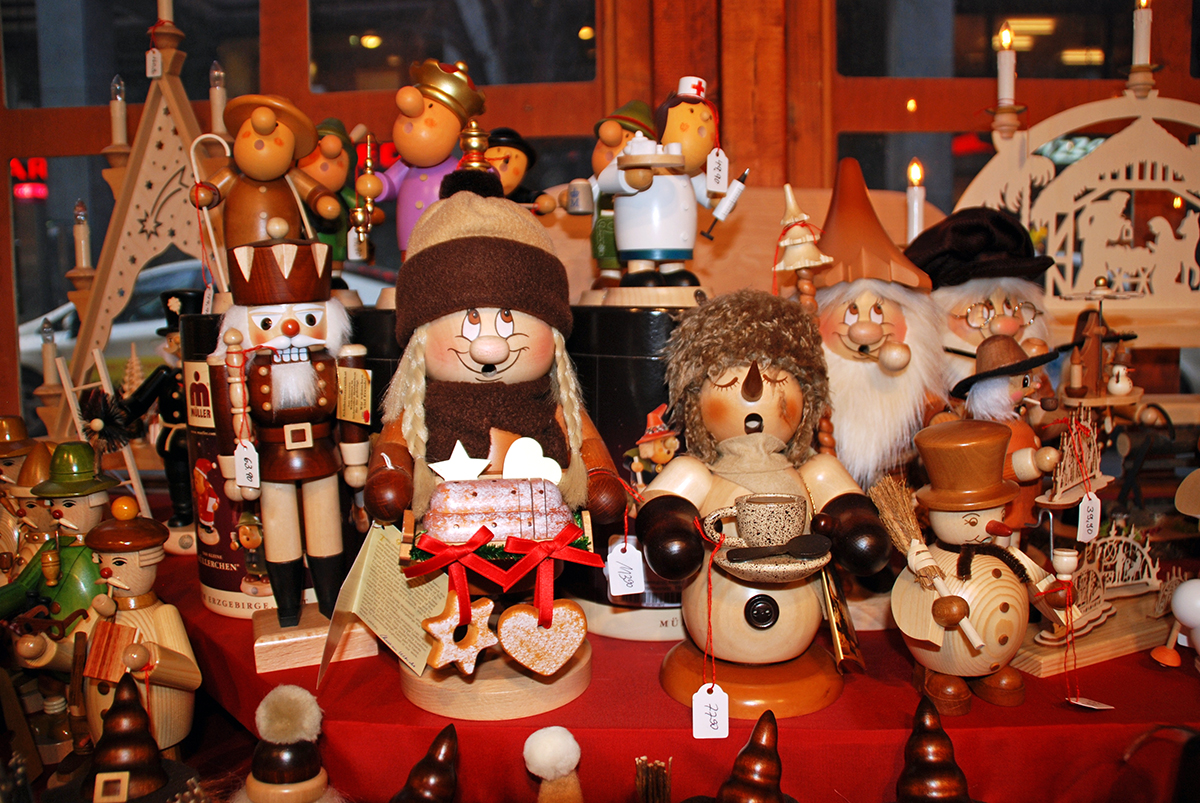
Wooden decorations and toys, Berlin Christmas market
Where exactly in Europe can I find a Christmas market?
You’ll definitely find them all over Germany. From the big cities of Frankfurt, Dresden, Munich and Cologne to smaller towns like Trier, Bernkastel, Klagenfurt, and Bamberg. Most every city and town has a Christmas market and some of the big cities have more than one, with each neighborhood having its own.
Strasbourg, France; Vienna, Austria; Lille, France; Stockholm, Sweden; Budapest, Hungary; Bruges, Belgium; Birmingham, England and Dubrovnik, Croatia all have well-known Christmas markets. So you can go lots of different places in Europe and find a Christmas market. But Germany is your best bet as is Austria and the eastern regions of France.
The market usually takes place in the main town square and some of the connecting pedestrian zones. Some of them are quite large while others are a bit smaller, but no less enchanting.
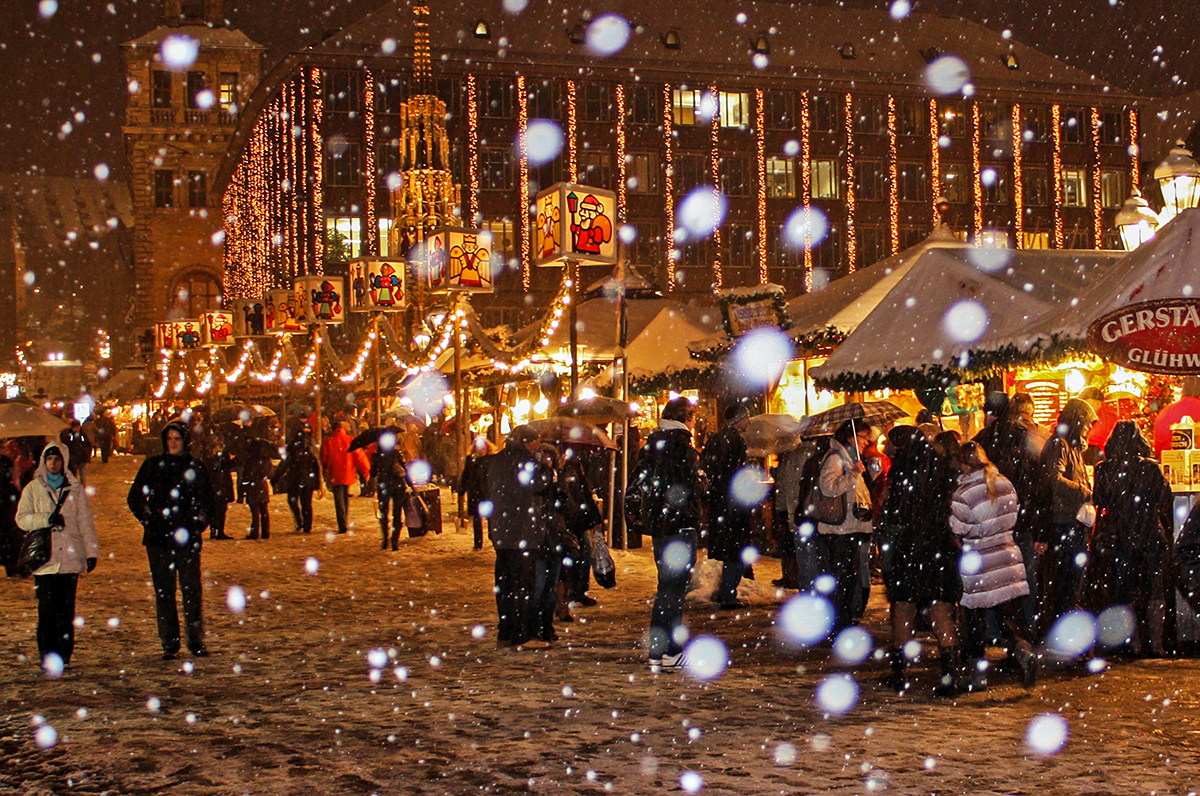
Snow falling at the Nuremberg Christmas market, Germany
When is the best time to visit a Christmas market?
Prices for flights and accommodation go up right at the holiday so my advice is to go at the beginning of Advent — late November to early December depending on the year. More than likely you’ll get better deals on airfare and better rates on your hotel at this time.
If you want to spend Christmas in Europe, then plan in advance to get the best bang for your buck.
While I’ve never been in Europe for Christmas, it is a dream of mine. My friend in Dublin always tells me it’s pretty magical there at Christmas time. And I can only imagine being someplace with snow like my beloved Dolomites or the Alps of Switzerland or France.
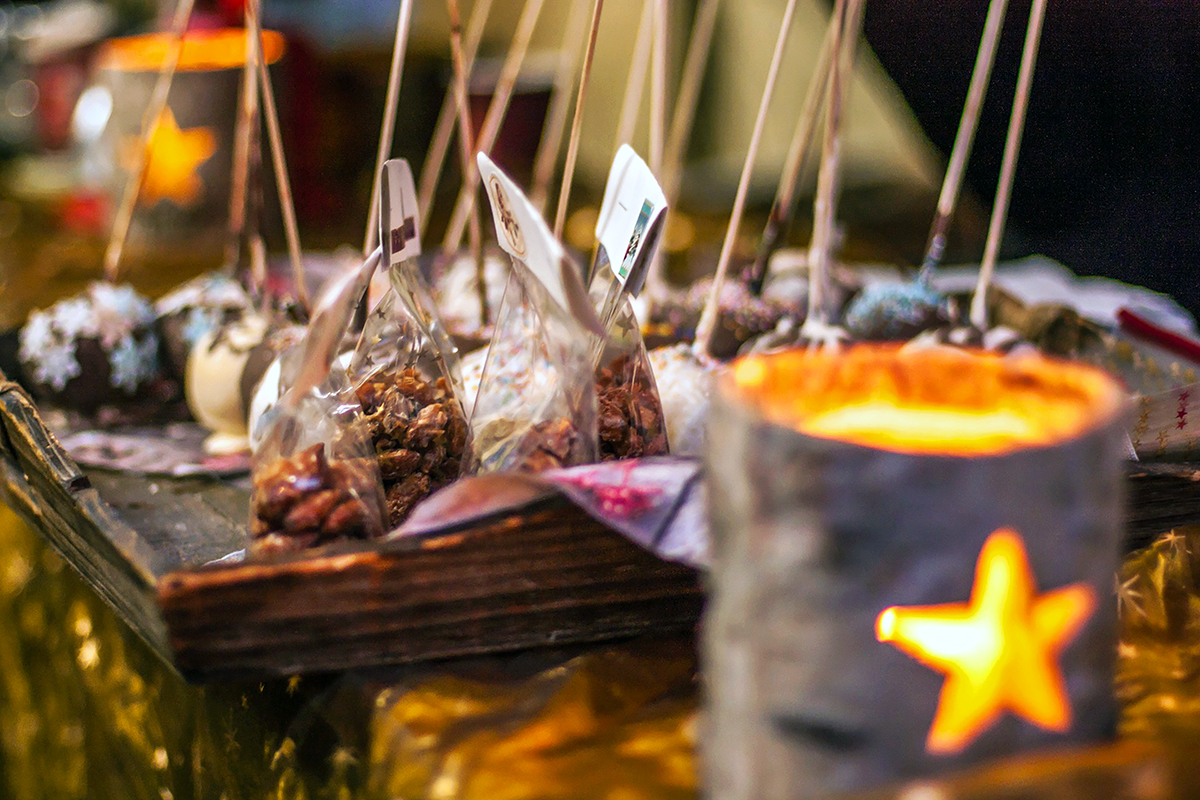
Sweets at a Christmas market
If you love Christmas
Then you might want to get to Europe around the holidays to experience the European Christmas Market. And while you can find Christmas markets in the States and Canada and elsewhere in the world, there’s no place quite like where they originated – in the heart of Europe!
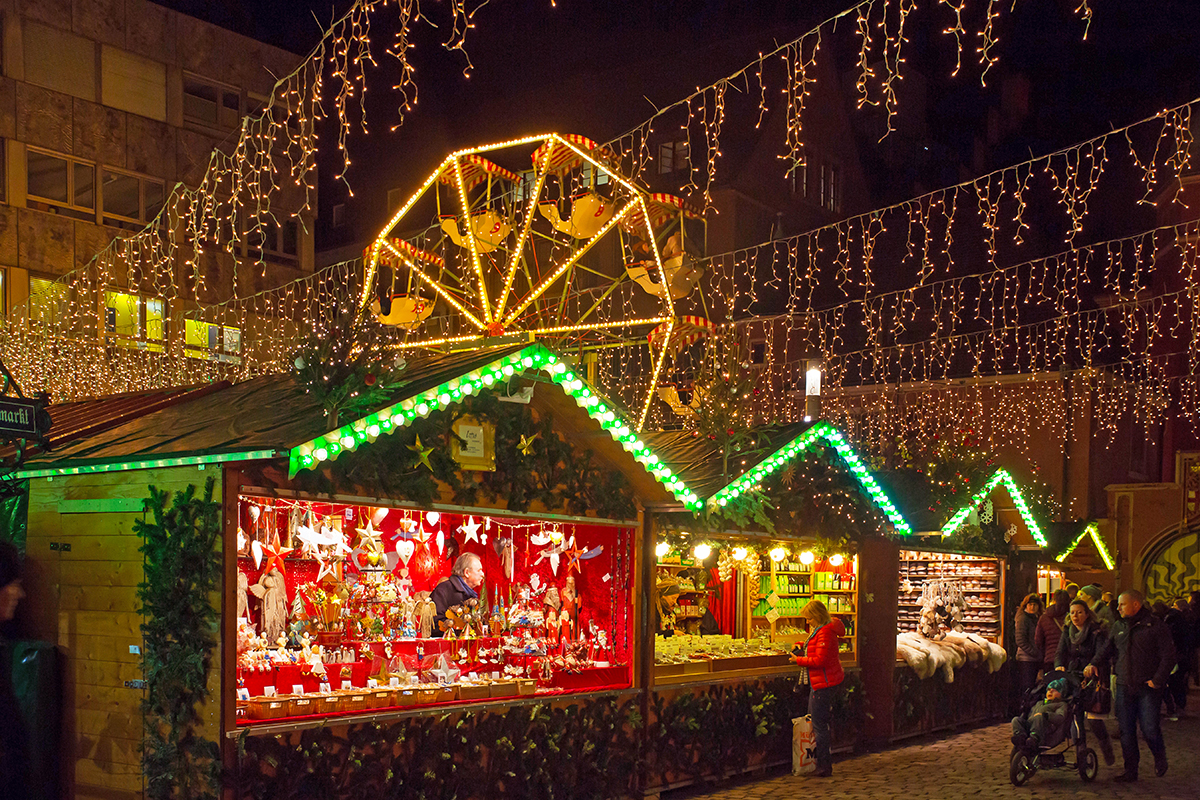
Buden Christmas market, Germany
Resource for finding the perfect Christmas markets:
The Telegraph Best Christmas Markets
Travel and Leisure Best Christmas Markets
Photos courtesy of Pixabay

